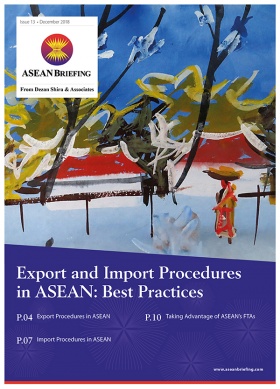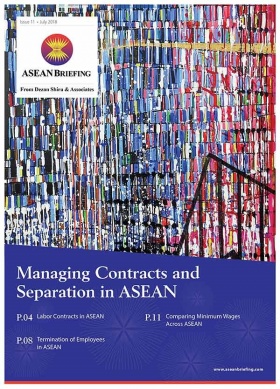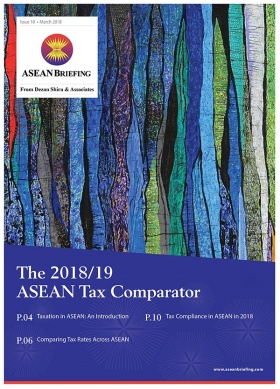The Philippines’ Foreign Investment Act: Amendments May Attract FDI from SMEs
- Philippine lawmakers approved House Bill 300 which amends two provisions of the Foreign Investment Act of 1991.
- The bill aims to attract greater foreign investment which declined in 2019 compared to the previous year.
- The amendments pertain to the removal of the ‘practice of professions’ from the foreign investment negative list, and the reduction in the mandatory direct local hires by foreign investors.
On September 9, 2019, lawmakers approved House Bill 300, which amended two provisions of the Foreign Investments Act (FIA) of 1991, to attract greater foreign investment into the country.
The two provisions that were amended pertained to the removal of the ‘practice of professions’ from the Foreign Investment Negative List (FINL), as well as a reduction in the number of mandatory direct local hires by foreign investors from 50 to 15.
The issuance of House Bill 300 comes off the back of a downturn in foreign direct investment (FDI) in 2019. According to the central bank of the Philippines, net FDI inflows declined to US$3.1 billion from US$5 billion in 2018. Analysts have argued that the country’s strict laws on foreign ownership and employment restrictions have contributed to the relatively low FDI compared to its regional peers.
In contrast to other Southeast Asian countries, the Philippines’ recent reforms to encourage foreign investment have been more cautious. However, the amendments should be welcomed by foreign-invested companies in the Philippines, as well as businesses considering an investment.Exclusion of ‘practice of professions’ from the FINL
The practice of professions in the FINL states the scope and limitation of foreign ownership and employment in specific industries in the Philippines.
By excluding restrictions on professionals from the FINL, the government hopes to attract more skilled foreign professionals so that Filipinos could gain new knowledge and broaden their existing skills set, enhancing their competitiveness in both domestic and international labor markets.
Reduction in the required number of direct local employees
The amended FIA states that foreign investors can set up and have 100 percent ownership of small and medium-sized enterprises (SMEs).
To be eligible, foreign investors must utilize advanced technology (which will be determined by the Department of Science and Technology in the future) or hire 15 local employees; previously, they had to employ at least 50 local staff. Foreign investors will still need to pay the US$100 thousand of paid-in capital to start their business.These changes should alleviate difficulties for foreign-owned SMEs that previously needed to meet and sustain the previous employment threshold, a barrier for effective FDI.
Other investment-friendly reforms
In addition to amending the FIA, the government has implemented other measures to attract more FDI, in particular, to capture the spillover from the US-China trade war.
In September 2019, the government introduced the Corporate Income Tax and Incentives Rationalization Act (CITIRA), which sets out to gradually reduce corporate income tax and rationalize specific tax incentives.
Earlier in January, the Public Service Act was amended after 83 years to open key public utility sectors, such as telecommunication and transportation to foreign investors.
Furthermore, in September, changes were made to the Retail Trade Liberalization Act of 2000 that sets the minimum paid-up capital for foreign-owned enterprises looking to invest in the country’s retail industry at US$200 thousand. The bill also eliminates the requirement for foreign investors to acquire shares of stock of local retailers and proposes to reduce the proportion of locally manufactured products carried by foreign retailers from 30 percent to 10 percent of the aggregate cost of their stock inventory.
The Philippines, however, must face increasing competition from its ASEAN peers in attracting FDI. Vietnam, Thailand, Malaysia and Indonesia have all issued various incentives and tax cuts to entice investors seeking to diversify their supply chains as a result of the trade war.
About Us
ASEAN Briefing is produced by Dezan Shira & Associates. The firm assists foreign investors throughout Asia and maintains offices throughout ASEAN, including in Singapore, Hanoi, Ho Chi Minh City and Jakarta. Please contact us at asia@dezshira.com or visit our website at www.dezshira.com.
- Previous Article China-Singapore FTA: Protocol to Upgrade Agreement in Effect from October 16
- Next Article Trade War Incentive Schemes in ASEAN












